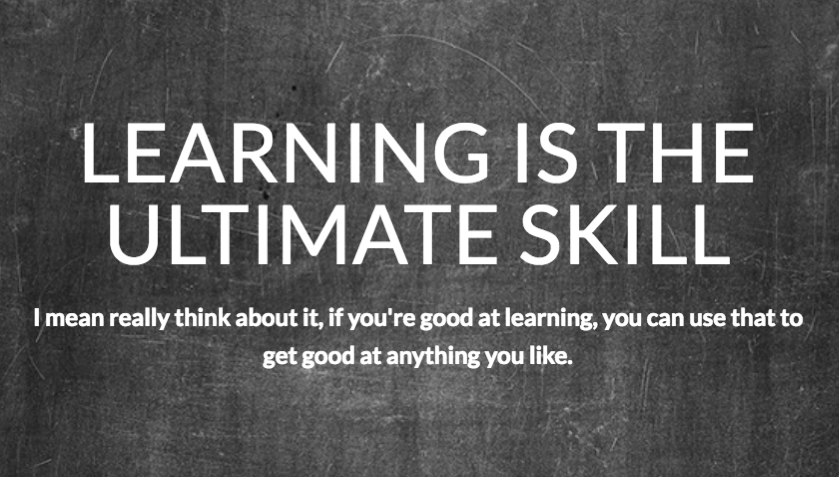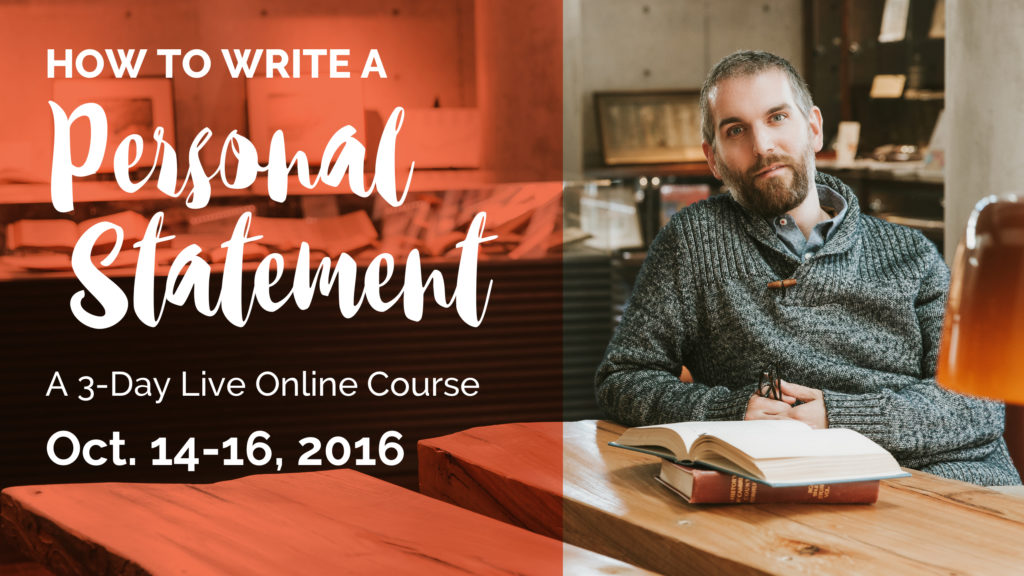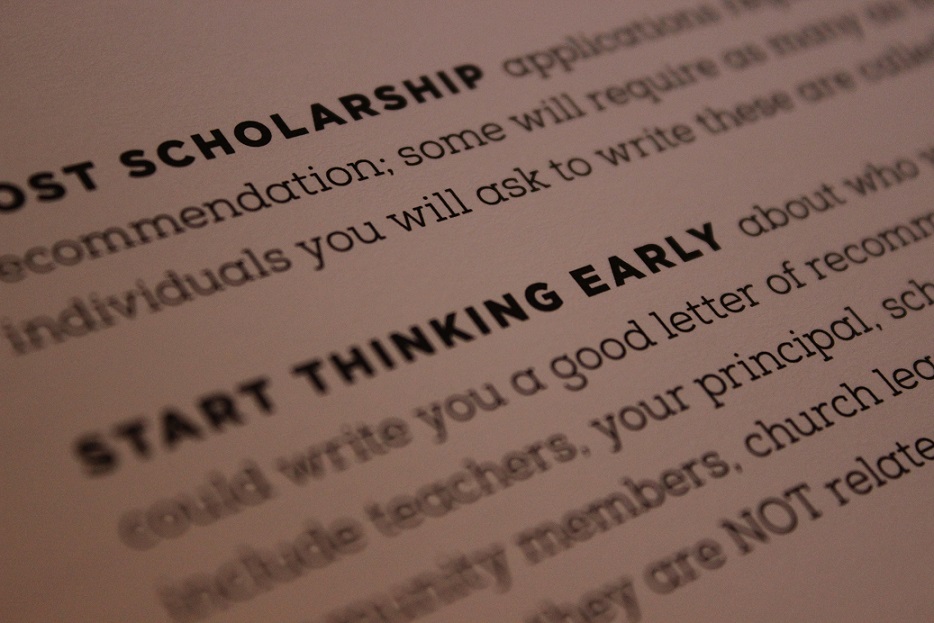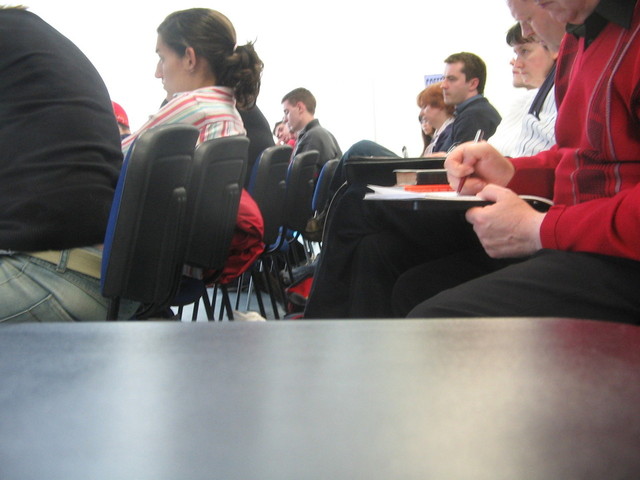
The average American student attends school 180 days each year. Multiply that by 12 years and, by the time you graduate, you get 2,160 compulsory school days. You would think after all that reading, writing, studying, test-taking, and amassing of extracurricular and civic engagements that writing a college admissions essay would be a breeze. For many, however, that could not be further from the truth.
Somewhere around seventh grade, American schools tend to shift from an emphasis on narrative and descriptive writing to expository and persuasive writing. As the vast majority of college/university admissions departments favor narrative and descriptive essays, this creates an unfortunate situation for many college applicants. Even advanced high school writers may find the college admissions essay difficult to write.
Here are the 10 most important writing tips I’ve gained from my years of experience helping students write admission-worthy essay. Follow them and you will be well on your way to writing the kind of essays that transport admissions officers to a time and place showered in such detail it is as if they have been personally invited into the past to experience your life first hand.
1. Write in the Right Style
The first writing tip I want to share is to select the right writing style for your admissions essay. The vast majority of college admissions essays are personal narrative and memoir. Both draw upon real-life experiences to tell true stories in a fictionalized style that includes characters, plot, conflict, setting, and theme.
Personal narrative relays the storyteller’s thoughts, feelings, and experiences on a certain event. Memoir focuses on one particular moment or series of moments, centered around a theme and usually drawing certain conclusions. In personal narrative and memoir, you are both the storyteller and the main character.
2. Know Your Voice, Use Your Voice
When we talk about voice as it relates to writing, we are talking about a combination of word choice, syntax, diction, character development, dialogue, etc. Given the importance of the college admissions essay, students tend to look for a different, more desirable voice. Don’t do this. Admissions essays are not about how smart, funny, or distinguished you sound. They are an invitation for you to authentically bear witness to who you used to be and to how you got to be who you are now.
Whatever voice you have been using up to this point is your authentic voice. Use it. Also be mindful that, unlike the spoken word, the written word is unable to convey inflection, body language, facial expressions, etc. This awareness is critical; for most of us, the college admissions essay is our first experience writing for someone completely unknown to us.
3. First Write How You Speak, Then Edit
Often our speaking, texting, and social media “voice” differs from our academic or traditional writing style. We use this voice more than we write, so this voice tends to be our dominate, authentic, more honest, and less censored representation of ourselves. The first step of personal narrative and memoir style writing is to get your thoughts –in your authentic voice– on paper without edits from your internal academic writer. In other words, let your speaking, texting, and social media voice share your story.
This is just the first step since, for most of us, this voice in written form often presents as scattered, repetitive, fragmentary, and long-winded, qualities which can easily tank an admissions essay, even one with a highly compelling subject. The best way to showcase your authentic voice while avoiding these pitfalls is to begin by writing at least two drafts long-hand with little emphasis on punctuation and grammar.
4. Make Every Word Count
Not all words have to make a reader’s hair stand on end. Each word should contribute, not distract. Words and phrases that rarely contribute include: like, really, just, you know, and, actually, I guess, also, that, I mean, a lot, kind of. Not sure whether a word or phrase contributes or distracts? Read the sentence aloud without the word. Avoid five-dollar words when a fifty cent one will do.
If admissions officers are reading your essays, you have already passed the smart enough test. Personal narrative and memoir style writing uses words to create images in the reader’s mind and to engage them. To achieve this, use descriptive words and sensory imagery when describing your characters and setting. Try replacing emotional qualifiers, such as angry, overjoyed, fearless, tender, devastated, etc., with brief action-reaction event descriptions that create the context for that emotion.
Remember, your goal here is to transport the admissions officers to a time and place showered in such vivid detail that it is as if you have personally invited them into your past to experience, to experience your life first hand.
5. Don’t Forget the Middle
Everyone knows strong openings and closings are critical when constructing admission-worthy essays. Far too many people forget the middle is just as important. Unlike your high school English teacher, admissions officers are under no obligation to finish reading your essay.
Considering admissions officers’ hectic travel schedules and the sheer volume of essays to be read, there is a good chance that, if read, your essay will be read piecemeal over multiple sittings. If you are writing a 650-word essay, something compelling enough to keep the reader’s attention –or to make them want to return– needs to happen between 250 and 320 words.
6. Backstory
To effectively craft a personal narrative admissions essay you will need to provide a back story. In addition to offering setting and context, the backstory plays a critical role in determining the degree to which the reader feels invested in you and your narrative.
The problem arises when the back story becomes the story. If you find yourself unable to tell the story you want to tell absent a significant and overtaking back story, then tell a different story. While not the easiest method, a seamless way to introduce a backstory is to weave it into the story you are trying to tell. It is worth noting some of the most informative and compelling backstories have been told in one sentence.
7. Stay On Topic, Be Specific
Admissions essays are not autobiographies, streams of consciousness, resumes, or opportunities to further address and/or explain that which can be contained in your application. They are also not invitations to reimagine what is being asked of you.
Most admissions essays ask you to describe, recount, explain, identify, or discuss an event, experience, time, or life lesson. Whichever you choose, begin by focusing on the specific details surrounding your story. Look for the stories within the story. If you find one, consider telling that story. Be specific, not only in the story you tell but how you tell it. Readers expect you to be as specific as you can usefully be. Watch out for generalities.
8. Don’t Oversell, Don’t Undersell
While admissions essays are the perfect place to brag about your accomplishments, don’t oversell. Only brag if it’s worth bragging about. Nobody cares if you served Thanksgiving dinner to the homeless. They care if you started a take home food pantry at your school, so kids didn’t have to go hungry over the weekend.
Admissions essays are also not the place to undersell. If it took two years and a sit-in to start a Gay/Straight Alliance at your school, make sure that you include that detail, not simply that you started a GSA.
9. Tell on Yourself
One of the biggest mistakes students make is to try and craft essays which show only their best qualities. Colleges and universities are not looking for perfect people. They are looking for authentic people. Authentic people are flawed people. Some of our most compelling stories are the ones that open with showing us in less than favorable light.
Throw in your lessons learned or what you have done to repair past wrongs and redeem yourself, and you have the makings of a compelling redemption story. Admissions officers have read hundreds of stories from kids who were bullied. They are dying to read the reformed bully’s story.
10. Writing About Difficult Experiences
This last writing tip is a tough one. We’ve all had painful of experiences. Many of these experiences are difficult to talk about, let alone write about. However, sometimes, if there is time, distance, and healing between you and the experience, you can not only revisit the experience but also articulate it as an example of how even the most painful of experiences can be reclaimed, transformed, and accepted for what they are, the building blocks of our unique identities.
If you can do this, go for it. When done well, these types of narratives are the most impactful. Do remember you are seeking admission into a community for which the admissions officer is the gatekeeper. They need to know that, if admitted, not only will you be okay but your fellow students will be okay as well.
________________________
Today’s guest post is from Chad Goller-Sojourner. Chad is a Seattle-based memoir and personal narrative essayist, solo-performer and founder of Bearing Witness: College Admissions Essay Writing Coaching he can be reached at www.bearingwitnessadmissions.com










